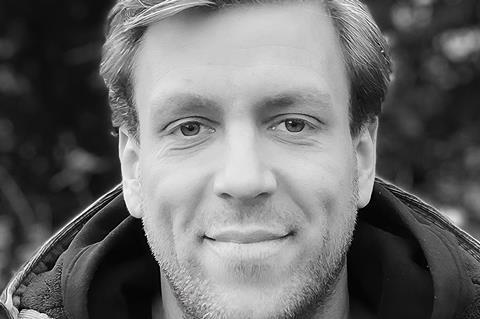
German filmmaker Milan Skrobanek’s Filmfest Hamburg premiere The Unspoken Language (Als Wäre Es Leicht), is one of the first German films to star deaf and blind actors.
David Knors stars as a young blind man who falls in love with a deaf woman played by Cindy Klink.
Working with co-writer Eibe Maleen Krebs, Skrobanek crafted a storyline that allows the lovers to communicate digitally via text messages. This also gave Skrobanek the scope to play freely with the dialogue in the edit.
The Unspoken Language is produced by Hamburg-based Curlypictures with ZDF/Das kleine Fernsehspiel and Tamtam Film, with support from MOIN – Filmförderung Hamburg Schleswig-Holstein, Nordmedia und den Deutschen Filmförderfonds (DFFF).
Berlin-based Port-au-Prince Pictures has German rights.
The film shot across Germany and in Hamburg for 40 days, spread out over a year to capture the change in seasons.
Skrobanek talks to Screen about why the film was seven yeras in development, how he finally found his actors, and the biggest challenge on set.
What was the inspiration for The Unspoken Language?
I wanted to examine why we fall in love. We always say communication is so important, and we are always trying to make it [seem] like a rational decision. But in the beginning, if you like someone, words and the exchange of words, is not important. I wanted to create a relationship where normal communication is impossible and try to figure out how they can fall in love. At what point in the process does communication becomes more important?
How did the project come together?
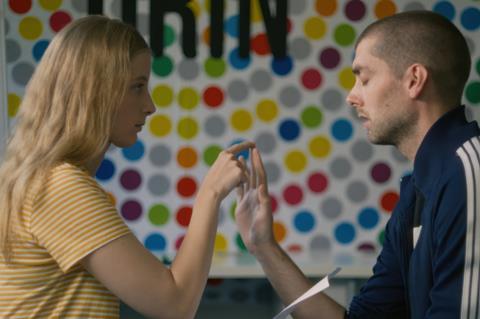
I had the idea in 2006 and made a short feature in 2007 as my application for film school. [Skrobanek studied film at the Hamburg University of Visual Arts and the École des Beaux-Arts in Marseille]. I finished university in 2013 and I’ve been trying to turn my short into a feature from then. I was quite surprised nobody had done something like this before. As the years passed, I was scared someone would beat me to it.
I stopped counting how many times I tried to get it financed. I wrote a treatment, a first version then I changed everything again, and it didn’t work, nobody was interested. I still believed in the idea, so I changed my approach. I shot a trailer to get it financed, because these days, it’s just easier to pitch if you have something visual and I asked my friend Eibe Maleen Krebs, who studied with me in Hamburg and had already written a feature, to help me.
What or who made the difference?
The first people to come on board were [Hamburg film fund] MOIN – Filmförderung Hamburg Schleswig-Holstein. They gave us the first money for the treatment and then we got money to write the treatment. With the treatment we got more money from [the fund] to write the script, and then [German broadcaster] ZDF joined the project.
The most important moment was when we were nominated for the German film prize for screenwriting in 2023. That nomination got the project to the next level.
How did you cast the film?
In Germany, there are not a lot but at least some deaf actors who have agents. We found Cindy Klink and Athena Lange, who is also deaf and plays Cindy’s best friend, through casting sessions. Both actresses were already working in TV.
But [professional] blind actors in Germany don’t exist. We started a German-wide casting by talking to the various institutions responsible for blind people in all the big cities. We also put out an open casting call on social media asking for people to make a small video of themselves and tell us who they were. We went through four rounds over seven months of calling in actors. The last person through the door was David [Knors] and we cast him.
Did you take a particular approach when working with your cast?
I didn’t really think about it, I treated them as actors. For the film it was more the question about how to direct people who have no experience in filmmaking. I really wanted to call Ken Loach because he’s a master of finding non-actors and directing them. Where does he find these people and why do they act so well?
What were the opportunities and challenges of working with speech in a slightly different way?
There are two kind of dialogues, the normal dialogue and the technical conversations with WhatsApp and mobiles. We rewrote a lot of the dialogue in the editing process, because during the shoot I realised, I could.

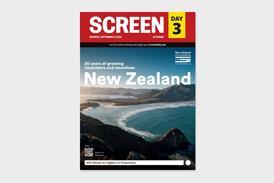
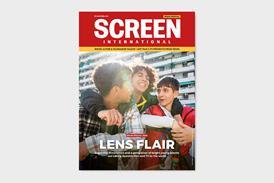
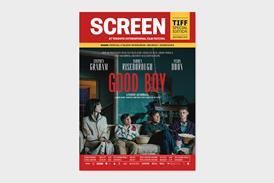
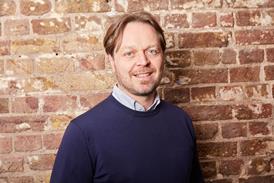
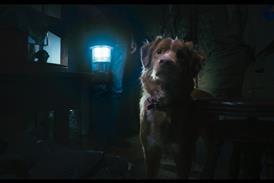
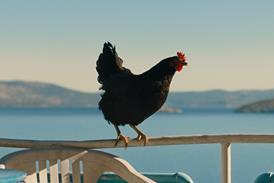
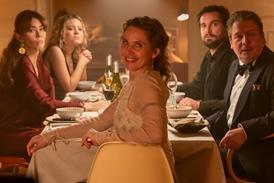

![[Clockwise from top left]: 'The Voice Of Hind Rajab', 'A House Of Dynamite', 'Jay Kelly', 'After The Hunt', 'The Smashing Machine'](https://d1nslcd7m2225b.cloudfront.net/Pictures/274x183/1/7/0/1459170_veniceawards_837515.jpg)


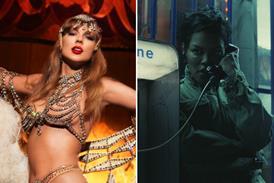
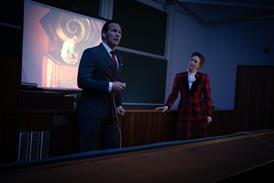
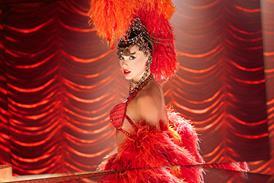
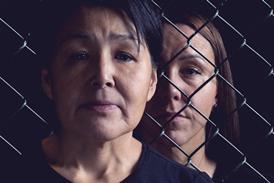
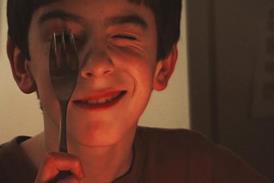
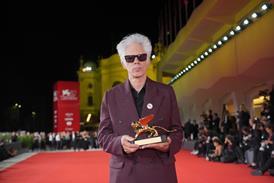







No comments yet